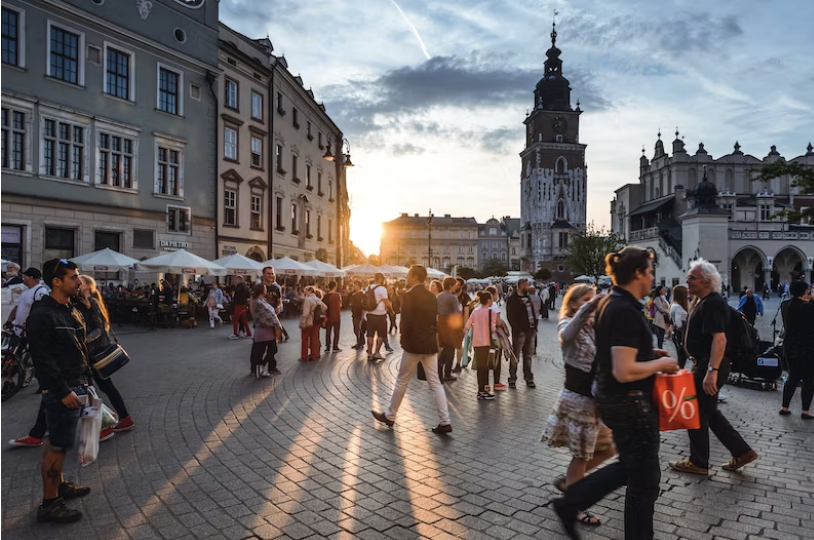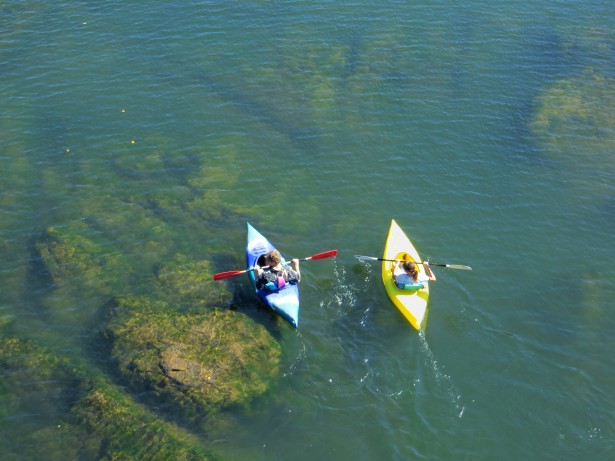The Silent Struggle of Campus Navigation & How Universities Can Solve the ‘Lost Freshman’ Problem
You’re Not Late You’re Just Lost It’s the first week of the semester. Thousands of students swarm the quad, new ID...

As the world grapples with the effects of climate change, sustainability has become a major concern across various sectors. The travel and tourism industry is no exception. With a growing awareness of the environmental impacts of mass tourism, there is an increasing demand for sustainable tourism practices that respect both the natural environment and host communities. Let’s explore the crucial role of Destination Marketing Organizations (DMOs) in promoting sustainable tourism and highlights some successful examples of their initiatives.
Sustainability in the travel and tourism industry is about balancing the needs of tourists, the environment, and host communities. It seeks to manage tourism development in a way that ensures long-term socio-economic benefits without degrading the natural and cultural resources upon which it depends.
According to the UN World Tourism Organization, sustainable tourism aims to do the following.
Destination Marketing Organizations (DMOs) are organizations responsible for promoting a town, city, region, or country in order to increase the number of visitors. They work closely with local businesses, tour operators, and local communities to attract tourists and ensure that tourism development benefits the local economy. As such, DMOs play a crucial role in promoting sustainable tourism practices and ensuring that tourism development aligns with the principles of sustainable development.

Sustainable tourism is more than just a trend; it’s a necessity for the survival of our planet and its diverse cultures. By promoting responsible tourism, we can help preserve the world’s natural and cultural heritage, empower local communities, and mitigate the environmental impacts of travel. Here are some key sustainable initiatives for DMOs
In recent years, international tourist arrivals have been steadily increasing, bringing both opportunities and challenges to tourism destinations worldwide. While tourism can stimulate economic development and promote local culture, it can also strain natural resources and disrupt local communities if not managed properly.
Sustainable tourism development is an approach that considers the long-term impact of tourism on natural resources, the local community, future economic prospects, and cultural diversity.
Sustainable tourism, by its very nature, refers to the careful stewardship of resources to meet economic, social and environmental requirements, all while preserving cultural authenticity, crucial ecological functions, biological diversity, and systems that support life.

One of the most critical components in sustainable tourism management is promoting eco-friendly transportation. It is essential for Destination Marketing Organizations (DMOs) to encourage public transportation, biking, or walking tours as they have a smaller carbon footprint compared to private vehicles. This move towards sustainable transportation reduces direct and indirect impacts on the environment, contributes to the preservation of natural sites, and promotes a healthier lifestyle among tourists.
Moreover, DMOs can partner with eco-friendly transportation services, such as electric vehicle rentals and hybrid buses, to further minimize the environmental sustainability impacts. These partnerships can also stimulate economic growth by creating jobs and attracting environmentally-conscious tourists.

Supporting local culture and businesses is another vital aspect of sustainable tourism. Showcasing and supporting local artisans, cultural events, and traditions not only enriches the tourist experience but also empowers local communities by providing economic and social benefits.
Encouraging tourists to buy local products and souvenirs can help sustain local businesses and contribute to economic development. Moreover, collaboration with these businesses to adopt sustainable practices can further enhance the community’s resilience and sustainability.
Waste reduction is a crucial part of sustainable tourism management. DMOs can play a significant role by providing recycling and composting facilities in tourism areas, initiating plastic-free campaigns, promoting reusable alternatives, and educating tourists about responsible waste management practices. These initiatives not only protect the natural world but also promote environmental awareness among tourists and the local community.
Conservation and preservation of natural heritage are at the heart of sustainable tourism. DMOs can contribute by preserving natural habitats and wildlife through responsible tourism guidelines, partnering with conservation organizations for eco-friendly initiatives, and establishing protected areas. Promoting responsible wildlife viewing ensures that tourists can enjoy the natural world without disturbing it, contributing to a more sustainable tourism industry.

Sustainable marketing and education are powerful tools that DMOs can use to promote sustainable tourism practices. Incorporating sustainability messaging in marketing campaigns can influence tourists’ behavior and make them more conscious of their impact on the destinations they visit.
Educating tourists about the importance of responsible travel through guides and information centers can enhance their understanding and appreciation of the local culture and environment. Collaborating with influencers or ambassadors who promote sustainable tourism practices can further spread the message and inspire more people to travel sustainably.
In conclusion, sustainable tourism means managing tourism’s social, economic, and environmental impacts while ensuring that it remains a positive force for global development. It is closely linked to the broader sustainable development goals and requires concerted efforts from all stakeholders, including DMOs, tourists, local communities, and governments. By adopting these initiatives, DMOs can ensure that tourism continues to be a source of enjoyment and enrichment for future generations.
Adopting sustainable practices in the tourist industry is essential for Destination Marketing Organizations (DMOs) and tourism areas to ensure long-term success and positive impact on the environment and local communities. These practices focus on sustainable management, which includes monitoring sustainable development impacts, empowering local communities, and promoting local culture.
Internationally, sustainable tourism companies are setting the standard for how tourism can be a force for good. They are showing that it’s possible to have a profitable business model that also respects socio-cultural aspects, protects the environment, and contributes to job creation in destination communities.
Here are some best practices that DMOs and tourism areas can follow:
By adopting these practices, DMOs and tourism areas can work towards achieving their sustainable development goals and ensure that their destination remains attractive and enjoyable for future generations of tourists.

An excellent example of a DMO effectively promoting sustainable tourism is Visit Finland. They have implemented a sustainable travel program named “Sustainable Travel Finland” that educates and assists Finnish travel service companies in adopting sustainable procedures.
For more information on how Visit Finland has successfully implemented sustainable tourism practices, refer to their comprehensive case study available: Read Case Study from Finland.
Another example is the South African Tourism Board, which has a comprehensive sustainable tourism strategy and partners with the Global Sustainable Tourism Council to ensure compliance with international standards.
To delve into the specific efforts made by the South African Tourism Board in implementing sustainable tourism practices, refer to their detailed case study in collaboration with the Global Sustainable Tourism Council. This case study provides comprehensive insights into their sustainable tourism strategy and the impact it has had on local communities and the environment. Read the South African Case Study.
Sustainable tourism is crucial for the preservation of our planet and its diverse cultures. DMOs play a vital role in this process by promoting sustainable tourism practices and ensuring that tourism development benefits local communities and preserves the natural environment. As we move towards a more sustainable tourism sector, the initiatives undertaken by these organizations will be instrumental in shaping a future where travel is beneficial for all.
You’re Not Late You’re Just Lost It’s the first week of the semester. Thousands of students swarm the quad, new ID...
Airbnb Didn’t Just Disrupt It Redefined Hospitality The traditional hotel playbook was written around consistency,...
The Battle for Eyeballs In 2025, attention is currency. Consumers walk through environments saturated with glowing...